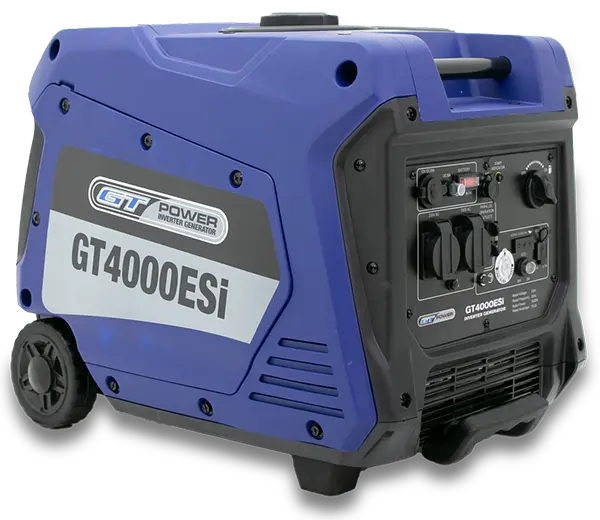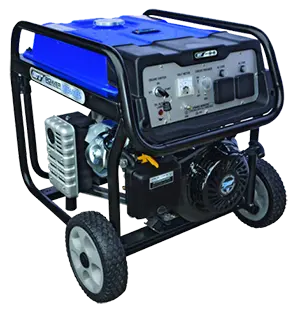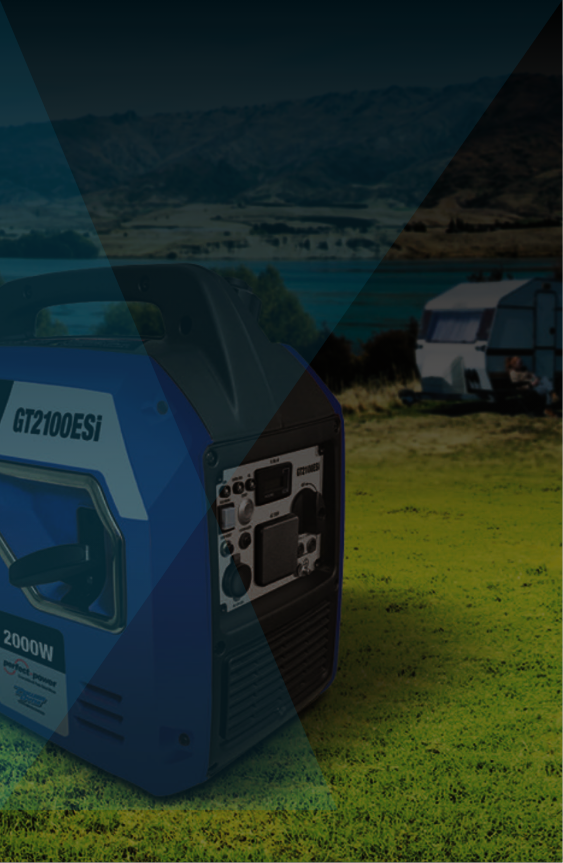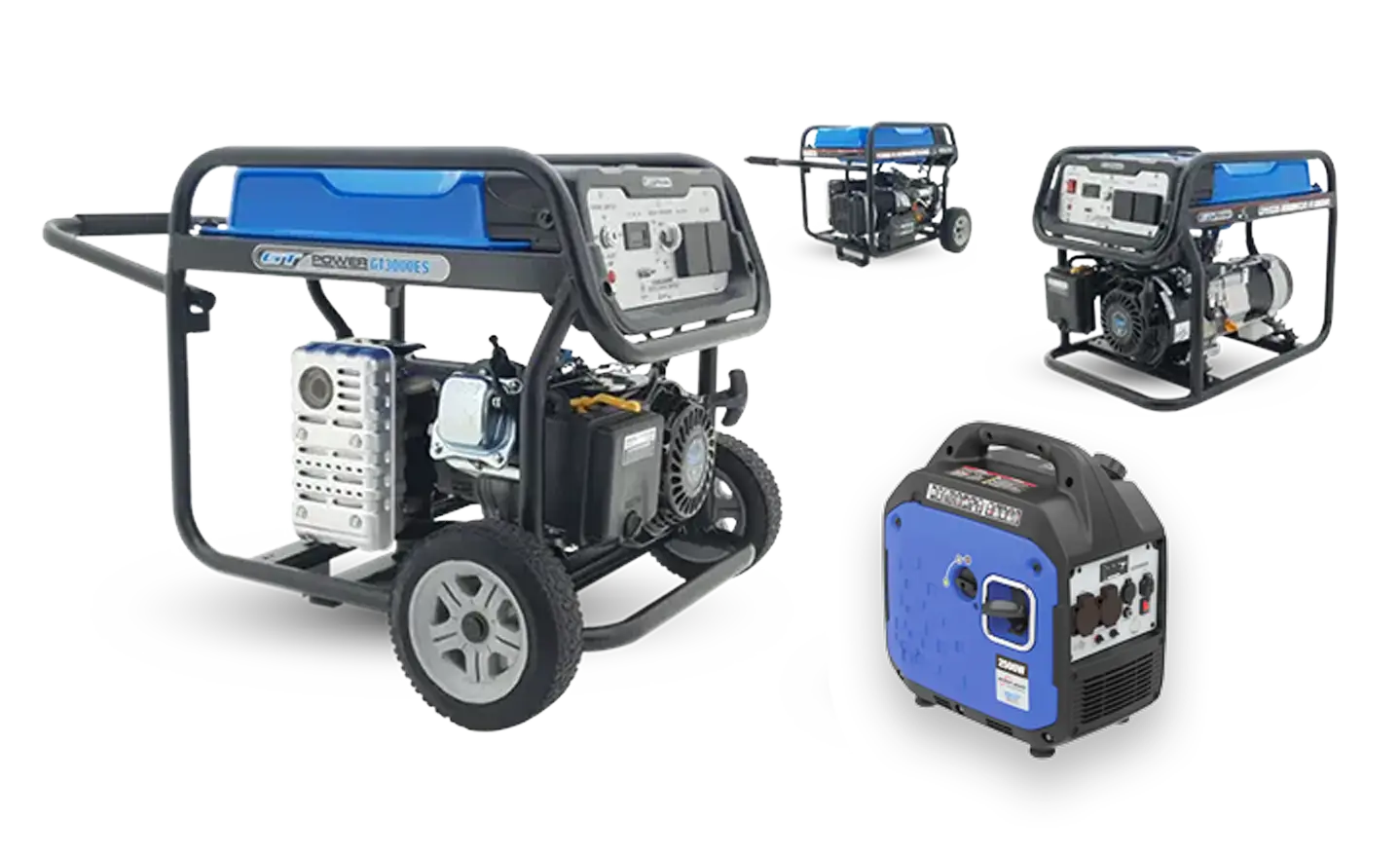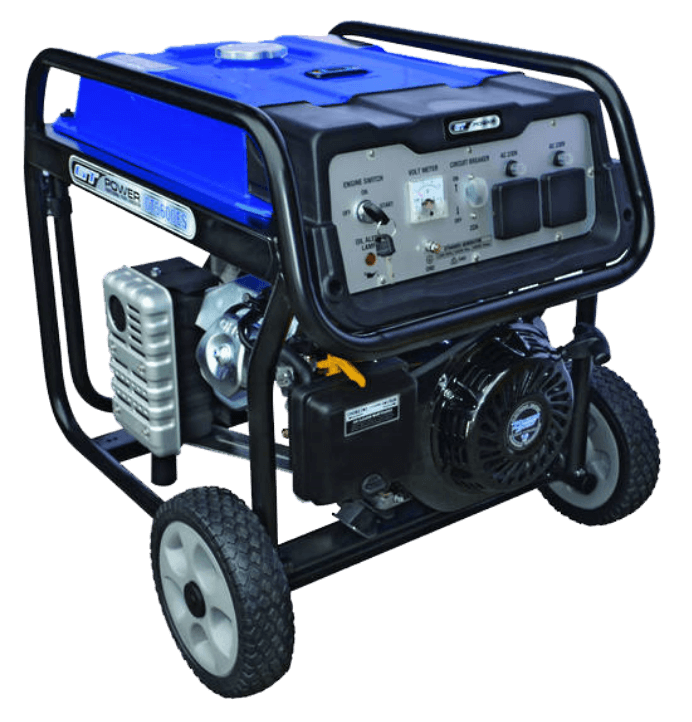
Traditional Portable Generator
Traditional portable generators produce power by using an engine to rotate two large coils of wire (the rotor) inside a circumference of magnets (the stator). Each full rotation of the engine produces one complete sine wave of AC power. Therefore, the engine must maintain a constant speed of 3000RPM to produce the standard of 50Hz. (3000 revs / 60 seconds (1min) = 50Hz). No matter what the load, a traditional style generator must run at full speed to provide the correct power.
View Conventional Generator Range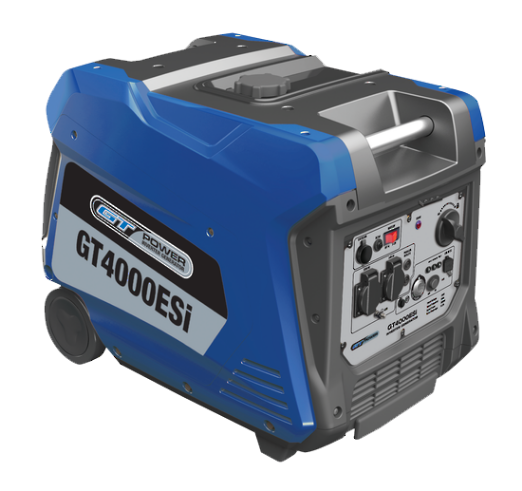
Inverter Generator
An Inverter Generator is normally used where power is required for sensitive electronic equipment like PCs, TVs and instrumentation. They are also chosen when portability or size is important and where noise must be kept to a minimum.
View Inverter Generator Range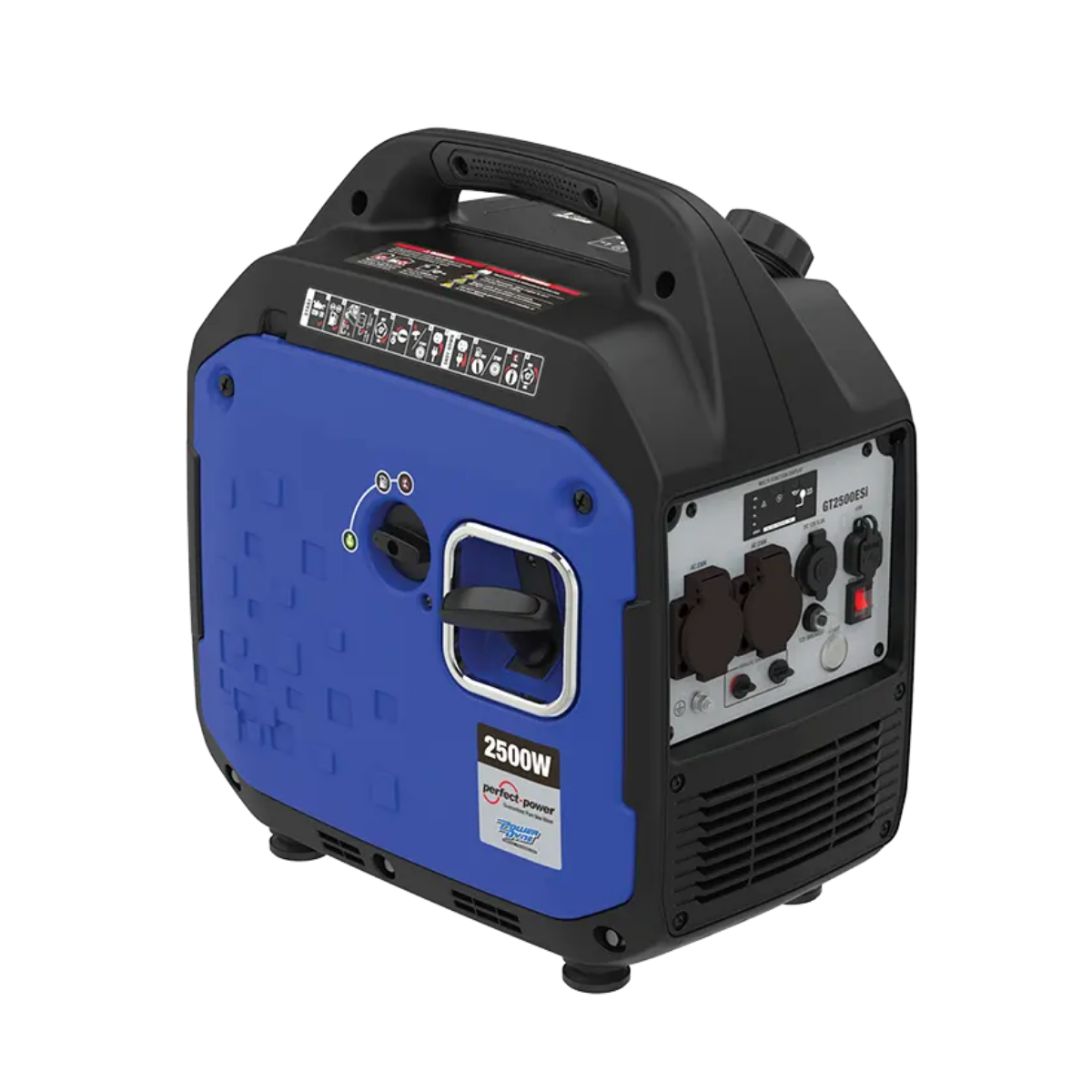
Portable Generator
A portable generator consists of two main components, a gasoline or diesel-powered engine and an alternator. The alternator consists of a rotor (rotating) inside a stator (fixed). The engine power is used to rotate the rotor inside the stator which generates AC power. Portable generators have many applications at work and around the home and have made outdoor events and projects much easier to tackle.
The GT POWER Range of generators take this convenience and portability to another level with the latest technology and functions.

Make a list
Designed from the ground up, GT Power has studied the Kiwi lifestyle and New Zealand conditions, and have curated a range of portable, versatile generators that suit the way of life that we live and love. GT Power has matched their models to suit the tasks that you do most. With generators ranging from 2000W to 18000W, GT Power has your portable power needs covered.
Note the wattage required
The list below offers a guide on the wattages used on most common appliances and items used at home and in the workplace. For exact figures we recommend you check the nameplate or instruction manual for your individual appliances. Also listed (where applicable) is the “starting wattage” or “surge wattage” which is the amount of wattage needed to start an appliance with a motor. This may be up to three times the wattage required to run the appliance, so this must be taken into consideration.
All generators also have a maximum and rated wattage output. GT POWER Generators are designed to work at their maximum rating for up to half an hour. Rated power is the level where the generator can be operated continuously and is typically 90% of maximum power.
Calculate your total power needs
This chart lists average power requirements. Your particular tool or appliance may require more or less than the listed wattage. Firstly, add up all the “running wattage” requirements for all the items that you need to power simultaneously. Next, add to that total the highest of the “starting wattages” you listed down. Now you know approximately how much power you need to start and run your appliances and equipment.
Average Power Requirements
| Home Appliances / Tools | Approx Run (W) | Approx Start (W) |
|---|---|---|
| Microwave 750W | 750 | 1200 |
| Coffee Maker | 1750 | 1750 |
| Electric Clothes Drier | 5750 | 5750 |
| Washing Machine | 1150 | 2300 |
| Refrigerator | 700 | 2200 |
| Lights | 100 | 100 |
| Colour Television | 350 | 350 |
| Electric Frypan | 1500 | 1500 |
| Dehumidifier | 400 | 400 |
| Computer - Desktop | 700 | 700 |
| Electric Jug | 2400 | 2400 |
| Dishwasher - Cool Dry | 700 | 1400 |
| - Hot Dry | 1450 | 2000 |
| Toaster - 2 Slice | 1250 | 1250 |
| - 4 Slice | 1600 | 1600 |
| Freezer | 2200 | 2500 |
| Hair Dryer | 800-1700 | 800-1700 |
| Steam Iron | 1800 | 1800 |
| Garage Door Opener - 1/4 HP | 550 | 1100 |
| - 1/3 HP | 725 | 1400 |
| Radio | 200 | 200 |
| Blender | 375 | 500 |
| Sump Pump 1/2 HP | 1050 | 2150 |
| Well Pump 1/2 HP | 1000 | 2100 |
| Household Water Pump | 1200 | 2700 |
| Workshop Appliances / Tools | Approx Run (W) | Approx Start (W) |
|---|---|---|
| Central Air Conditioner: | ||
| 10,000 BTU | 1500 | 2200 |
| 24,000 BTU | 3800 | 5000 |
| 32,000 BTU | 5000 | 6500 |
| Room Air Conditioner | ||
| 10,000 BTU | 1500 | 2200 |
| Circular Saw 7 1/4" | 1400 | 2300 |
| Chainsaw 2HP | 1100 | 2500 |
| Portable Air Compressor | 1200 | 3600 |
| Hand Drill 1/2" | 600 | 900 |
| Drill 1/2" | 600 | 900 |
| Battery Charger 15 amp | 500 | 700 |
| Electric Welder 200 amp AC | 9000 | 9000 |
| Jigsaw | 300 | 400 |
| Electric Weed Trimmer | 500 | 650 |
| Router | 1000 | 1300 |
| Belt Sander | 1000 | 1300 |
| Table Saw 10" | 1750 | 4250 |
| Bench Grinder | 1400 | 2450 |
| Concrete Mixer 3.5c/f | 1900 | 2500 |
| Band Saw | 1100 | 1350 |
| Power Drill - Medium | 1000 | 1200 |
| - Heavy Duty | 1500 | 1800 |
| Angle Grinder - 100mm | 1000 | 1200 |
| - 230mm | 2400 | 2700 |
*This chart lists average power requirements, your particular tool or appliance may require more or less than the listed wattage. It is always recommended to use true specifications where possible.
* Where START wattage is the same as RUN wattage, this signifies no additional power is required for starting.


